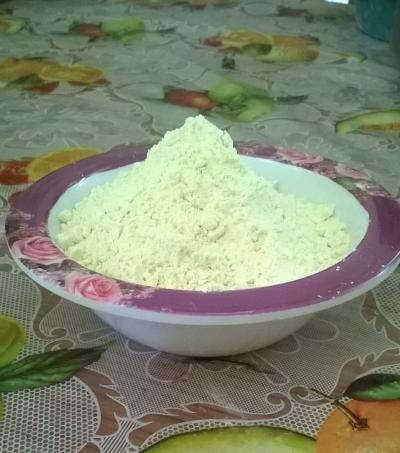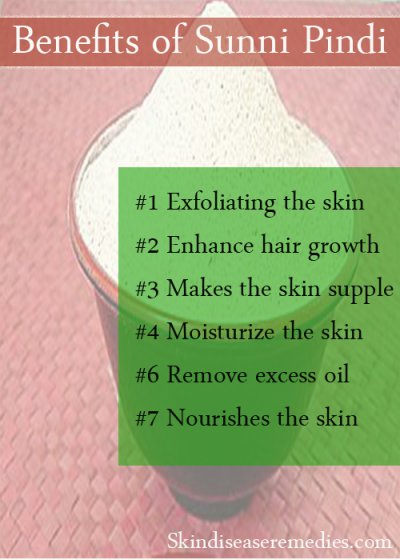
Your quest to get rid of inflamed pimples brought you here.
You might have tried many media promoted creams, but did you ever check your kitchen? Dig into this article to uncover uses of gram flour for acne.
Cosmetic products are been endorsed by celebrities and models, whereas our grannies extol the benefits of home available remedies.
When you have a glance at anecdotal reports, it shows that beauty products can steal the natural moisture from the skin, but natural ingredients fill your skin with essential nutrients.
Gram flour or chickpea flour has got a prominent role in Indian culture. Not just for making fritters, brides apply besan mask to exfoliate accumulated impurities.
Few lines about acne or pimples
We all knew it’s a chronic skin ailment that most teenagers and even adults face nowadays.
Researchers hold inflammation, hormonal imbalance, and excess sebum as main culprits for causing acne blemishes.
Apart from this, the food you eat and other factors trigger acne lesions.
Based on the demand for anti-acne creams, cosmetic industries started manufacturing different products.
But, these products are filled with chemical preservatives and refined natural ingredients, which can irritant your sensitive skin and ruin your physical appearance in the long run. (1)
Instead, switch to besan for pimples.
Also read: Is Jojoba Oil Good for Acne?
Is Gram Flour Good for Acne?
There are no chemical ingredients in case of gram or besan flour because you’re the one who is manufacturing it.
Don’t worry you don’t have to set up a company for that. Spare few minutes in the morning and you’ll have a natural face pack to treat acne.
Let me throw some light on its nutritional abilities.
- Besan or gram flour face mask is prominent to remove impurities, excess sebum and dead cells from the skin.
- It makes your skin firm and smooth.
- As mentioned, acne is mainly caused due to excess sebum and dead cells. Using gram flour twice or thrice in a week will remove the piled impurities, thus restraining acne lesions.
- Apart from this, chickpea flour can avoid other chronic skin ailments.
- It absorbs excess sebum and thwarts acne-causing bacteria with its antimicrobial properties.
- Continuous use of this face mask will lighten dark spots and improve our skin texture.
- Selenium, potassium, and calcium residing in gram flour help to revive your skin.
- The rich concentration of proteins housed in besan reduces the appearance of dark spots and make it radiant.
- Cleansing ability exhibited by gram flour help to unclog skin pores and also shrink large skin pores.
- Assorted nutrients in this home available ingredient help to boost collagen production and improve elastin.
If you’ve extremely dry skin, blend some essential oil like olive oil or honey to make the face mask effectively. Depending on your skin type you can mix other natural remedies.
Also read: Carrot seed oil for acne
How to Use Gram Flour for Acne?
Normal and oily skin people can directly mix some distilled water or rosewater to gram flour and topically apply over the face. You can densely apply the mask over pimples as a spot treatment.
For smooth skin, add some yogurt replacing rosewater.
Dry skin people; blend some cucumber juice to gram flour. To make it more effective add a pinch of turmeric powder and honey.
#1 Honey, Turmeric, and Gram Flour
Honey is known for its healing, antibacterial and anti-inflammatory properties.
Add some lemon juice to lighten dark spots. However, people with dry skin must stay away from its excess use.
- Take 2 tablespoons of gram flour powder in a bowl.
- Add 1 tablespoon of honey, 1 tablespoon of milk and a pinch of turmeric powder.
- After mixing thoroughly, keep the bowl aside.
- Prepare yourself for the homemade face mask treatment by washing your face with lukewarm water.
- Pat dry with a cloth and apply the mask evenly all over the face. Mix milk or honey if required.
- Leave the mask to dry for 15 minutes.
- Rinse the face mask with water.
Also read: How to Use Cucumber to Treat Acne?
#2 Aloe Vera and Besan for Acne
Vitamins and minerals packed in aloe gel nourish and soothe your skin. These nutrients help to reduce inflamed acne, lighten the appearance of acne scars and relieve sunburn.
- Mix 1 teaspoon of gram flour with 1 tsp of aloe gel.
- Wash your face to remove impurities and pat dry.
- Apply the face pack and leave it to dry naturally for 15 minutes.
- Rinse it off with water.
#3 Turmeric and Gram Flour for Pimples
Antiseptic and anti-inflammatory properties residing in turmeric helps to brighten your skin. Antibacterial and antimicrobial abilities help to treat acne and reduce the appearance of acne scars.
- Mix a pinch of turmeric powder to 2 teaspoons of gram flour.
- Add required amount of rose water to obtain smooth paste-like
- Apply this face mask to prewashed face.
- After 15 minutes, rinse it off with water.
#4 Multani Mitti and Gram Flour
Renowned for its cosmetic benefits, fuller’s earth or Multani mitti helps to absorb excess sebum on your skin. Nutrients in it restrain bacterial infection and lighten the appearance of scars.
- Add 2 tsp of Multani mitti with 1 tsp of gram flour.
- To obtain a smooth paste, add required amount of distilled water or rose water.
- Wash your face and apply the face mask.
- Rinse it off after 15-20 minutes.
#5 Gram Flour and Tomato
Antibacterial, skin lightening, de-tanning and vitamin C housed in tomato help to treat acne and make the skin radiant.
- Peel 1 ripe tomato and mash to obtain a paste.
- Add 2 tbsp of gram flour to it.
- Apply this mask on prewashed face and allow it to dry naturally for 15 minutes.
#6 Banana and Gram Flour for Acne
Hydrating and anti-bacterial abilities housed in banana helps to fight acne and other skin disorders. Healing properties helps to reduce scars and wrinkles.
- Mash 3 ripe bananas and add 2 tsp of gram flour to it.
- Mix required an amount of rose water to obtain a smooth
- Apply this face mask on acne affected skin and then allow it dry for 15 minutes.
- Rinse it off with water.
#7 Egg White and Gram Flour
Egg white helps to cleanse excess sebum, dead cells and other impurities accumulated on the skin. Assorted vitamins in egg white help to make your skin firm.
- Mix 1 egg white with 2 tsp of gram flour and ½ tsp of honey.
- After mixing thoroughly, apply the face mask on acne affected skin.
- Allow it to dry naturally for 15-20 minutes.
- Rinse it off with water.
#8 Green Tea and Besan
Antioxidant and soothing abilities exhibited by green tea help to reduce inflammation triggered by acne.
- Steep the green tea bag in a cup of hot water.
- After few minutes, remove tea bag and allow the decoction to cool down.
- Now, mix it with gram flour to obtain a smooth
- Apply the mixed paste on your face and allow it to dry naturally for 15 minutes
#9 Lemon Juice and Gram Flour
Antibacterial and bleaching properties residing in lemon juice help to treat acne and lighten the appearance of acne scars.
- Mix 4-5 drops of lemon juice with 1 tbsp of gram flour.
- Also, add a pinch of turmeric powder and plain yogurt.
- Add water if need to obtain thick paste-like
- Allow it to dry naturally for 15-20 minutes and then rinse it off with water.
#10 Neem Leaves and Gram Flour
Antimicrobial abilities packed win neem leaves can effectively treat acne lesions. Anti-inflammatory properties housed in these leaves help to reduce swelling of acne.
- Mix 1 tbsp of dried neem powder with 1 tbsp of gram flour.
- Add rose water or yogurt to make a thick paste-like
- Apply the mask on prewashed face and then rinse it off with water.
Optionally, apply natural moisturizer like jojoba oil or rosemary oil regularly before going to bed.
Note: Home remedies aren’t backed by scientific evidence, so you patch test before trying these recipes.
Important Tips
Gram flour for acne works effectively when you support the ingredient by consuming vitamin-rich diet.
Drinking lots of water, taking enough sleep and avoiding chemical creams must be included in this home acne treatment.
Foods that trigger acne lesions must be avoided.
Squeezing and picking acne lesions or pimples will make it worse, so avoid it.
There are few reports that claim that stress can trigger skin ailments. Do regular exercise and avoid stress.

